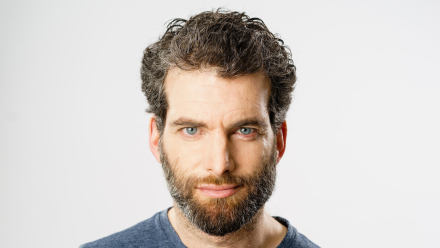
(editor's intro) You can't say anything any more. Well, actually you probably can. That well-known stand-up comedian Dame Maureen Lipman's comments about cancel culture threatening to "wipe out" comedy filled the comments pages yesterday. Her remarks were widely dismissed in the comedy community who noted, for example, that a number of comics talking about being cancelled had TV shows, podcasts and Twitter accounts to talk about being cancelled. Plus it's pretty hard to find anyone that has been cancelled, though if you look hard enough you might find a few whose earnings have taken a bit of a hit, but that's not quite the same thing. Plus Maureen Lipman is not a comedian and didn't cite any specific examples from what I saw. I could go on...
Anyway, I asked comedian Dan Antopolski his views on the matter and he sent over this articulate, eloquent, personal and occasionally provocative response. I think it's well worth a read...
Maureen Lipman has told the BBC: "it's in the balance whether we will ever be funny again.” because comics are afraid of being cancelled. Do you agree?
Comedy will bend but not break. Jokes require inversion, inversion requires a binary, established binaries are under attack. But comedy has had to jettison binaries before, on race and sexuality. It not only survived but thrived, though in that winnowing, individuals fell. It is all part of a larger cycle of the young attacking the old, as they should periodically. Of course being young they are ignorant, their crusading certainties are reductive and their aggression is charmless.
Have you been affected by cancel culture?
Only when I was scared that I wouldn’t get to see any more humanising and hilarious shows from Louis CK. Fortunately, enough people understand that good people can do bad things or that good artists can be flawed people or that people can learn and change. It does no good to deprive the world by pandering to our punitive zeal.
Has cancel culture made you rethink the kind of material you do?
I would say yes but then anything that makes you rethink your approach is a welcome stimulus. I have affection for very cheap jokes and annoying puerility - devilment for the sake of devilment. This is much more easily misunderstood now but I hope to write my way around it.
Do you censor yourself?
There is no need - audiences have that function. If they stop laughing at a bit, I will eventually drop that bit. But if they laugh guiltily then the bit stays in, their internal conflicts are their responsibility.
Have you said anything that has got you into trouble?
I have never had too much trouble in the court of public opinion - some grumpiness on twitter or in Edinburgh. In 2017 I had a joke that hinged on the clumsy assonance between “bin men” and “been men”, the switcheroo being to allude to the trans issue, threatening controversy - and then deliver naive wordplay - a piece of playful bathos. A youthful reviewer railed at my hatred and moral cowardice! At the end of the day people have to ‘get’ you. Most people now understand for example that Frankie Boyle is purposely saying the worst thing he can think of - and they give themselves permission to laugh. You can illustrate the casual cruelty of life by embodying and amplifying it - rather than attacking it explicitly. If I say something immoral and an audience protests, I whisper loudly, “It’s only me up here so I have to be the villain as well.”
Do you worry about causing offence?
Only if offence means pain - and even then a little pain is good for the circulation. I am definitely suspicious of offence loudly declared. Is this person in pain at all? Are they advocating earnestly for the voiceless as they claim? Or are they in a dopamine rapture of self-righteousness and cosy peer consensus? The glandular pleasures of anger are addictive and if unchecked can lead to the formation of churches.



